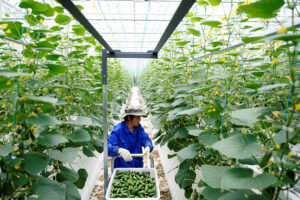BROAD ADOPTION of “green” farming techniques by middle-income economies could help reduce greenhouse gas emissions by nearly a third, the World Bank (WB) said.
The bank said the opportunities to reduce agrifood emissions rest largely with middle-income countries should they choose to adopt sustainable land use practices.
The global agrifood system is viewed as a major contributor to climate change. However, large numbers of people also depend on it for food and job security.
The World Bank noted that financing for agrifood system mitigation remains “strikingly low” at $14 billion, against $660 billion in total climate financing.
To cut agrifood emissions by 2030 and achieve net zero emissions by 2050, annual investment must be increased to $260 billion, it said.
“Action should happen across all countries to get to net zero, through a comprehensive approach to reducing emissions in food systems, including in fertilizers and energy, crop and livestock production, and packaging and distribution across the value chain from farm to table,” the bank said.
East Asia and the Pacific was reported to have some of the lowest rates of agrifood emissions per capita at 2 tons of carbon dioxide equivalent (tCO2 eq), behind Latin America and the Caribbean (4.4 tCO2 eq), and Europe and Central Asia (2.5 tCO2 eq).
“While the food on your table may taste good, it is also a hefty slice of the climate change emissions pie,” World Bank Senior Managing Director Axel van Trotsenburg said in a statement.
“The good news is that the global food system can heal the planet — making soils, ecosystems, and people healthier, while keeping carbon in the ground. This is within reach in our lifetimes, but countries must act now: simply changing how middle-income countries use land, such as forests and ecosystems, for food production can cut agrifood emissions by a third by 2030.”
The report also calls on high-income countries to shift subsidies from high-emitting food sources and to provide technical assistance to low- and middle-income economies in adopting low-emission farming practices.
Low-income countries must focus on preserving and restoring rainforests, as most of its agrifood emissions are caused by forest clearing, the World Bank said. — Beatriz Marie D. Cruz
